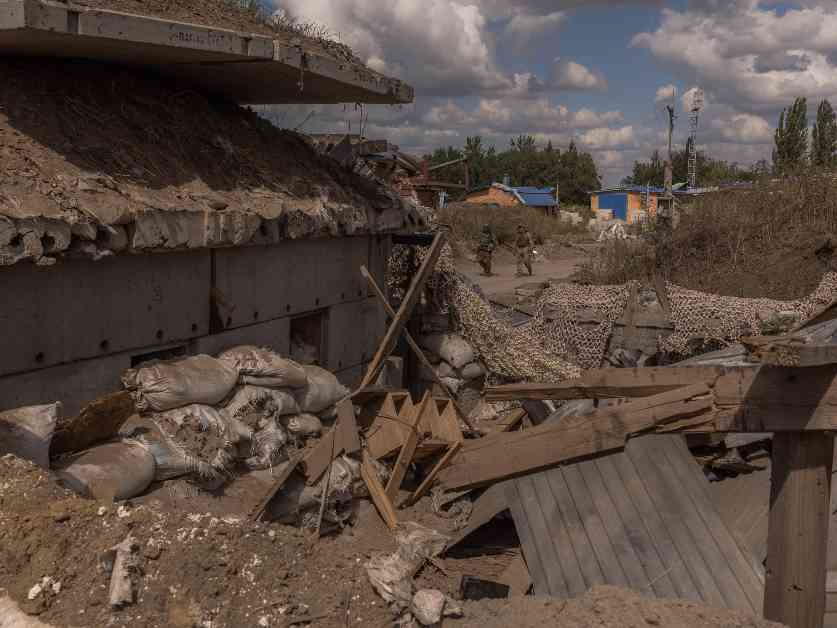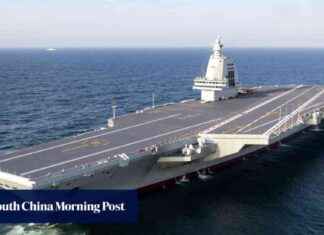President Zelenskyy Declares Full Control of Sudzha
On the 903rd day of the Russia-Ukraine war, President Volodymyr Zelenskyy made a significant announcement regarding Ukraine’s military operations. Zelenskyy stated that Ukraine had successfully taken full control of the town of Sudzha in Russia’s Kursk region. This marked a pivotal moment in the conflict, as Ukrainian troops had launched a surprise attack across the border on August 6. The aggressive move by Ukraine caught many by surprise, demonstrating their determination to push back against Russian aggression.
Advancements in Ukraine’s Military Operations
Ukraine’s top military commander, Oleksandr Syrskii, provided updates on the progress of Ukrainian forces in the Kursk region. He reported that Ukrainian troops had advanced by 1.5km (0.93 miles) in the previous 24 hours, bringing their total advancement to 35km into Russian territory since the incursion began. As a result, Ukrainian forces now controlled 1,150 square kilometers (444 square miles) of Russian territory and 82 settlements. These gains highlighted the effectiveness of Ukraine’s military strategy and the resilience of its troops in the face of Russian opposition.
Escalation of Tensions and Humanitarian Concerns
As the conflict intensified, Russia’s Ministry of Defence remained silent on Ukraine’s claims regarding the capture of Sudzha. However, the ministry did confirm that Russian forces had thwarted Ukrainian attempts to take several settlements in the region and had successfully retaken the village of Krupets. The escalating violence prompted Kursk acting governor Alexei Smirnov to order the evacuation of the Glushkovo district, located approximately 45km (28 miles) northwest of Sudzha. With over 120,000 Kursk region residents already evacuated due to the fighting, concerns about the humanitarian impact of the war continued to grow.
In a dramatic turn of events, Vasyl Maliuk, the head of the Security Service of Ukraine (SBU), announced that Ukrainian special forces had captured a group of 102 Russian soldiers in the Kursk region. This development underscored the high stakes of the conflict and the determination of Ukrainian forces to push back against Russian incursions. In response to Ukraine’s military successes, Russia announced plans to bolster its border defenses, enhance its command and control systems, and deploy additional forces to counter the Ukrainian offensive.
The conflict also spilled over into civilian areas, with at least two people killed and 12 injured in a Russian-guided bomb attack on Ukraine’s northeastern Kharkiv region. Regional governor Oleh Syniehubov condemned the attack, highlighting the indiscriminate nature of the violence that was affecting innocent civilians. Meanwhile, Serhiy Tsehotskiy, an officer with Ukraine’s 59th Motorized Brigade, emphasized the ongoing military pressure in Ukraine’s partially-occupied eastern Donetsk region. Despite the turmoil in Russia, Tsehotskiy noted that the bulk of Russian troops remained focused on the eastern front, posing a significant challenge for Ukrainian forces.
On the strategic front, Russia’s Ministry of Defence announced the capture of the Donetsk village of Ivanivka, located approximately 15km (nine miles) from the vital town of Pokrovsk in eastern Ukraine. This territorial gain by Russian forces highlighted the complex dynamics of the conflict and the shifting frontlines in the region. In response, Ukraine’s air force successfully shot down all 29 Russian drones targeting eight Ukrainian regions, minimizing the damage caused by the aerial assault.
Political Developments and Diplomatic Challenges
In a controversial legal decision, a court in the Russian city of Yekaterinburg sentenced 32-year-old Ksenia Karelina, a dual United States-Russian citizen, to 12 years in prison for treason. Karelina’s alleged crime? Donating $51.80 to a New York-based charity that provides aid to children and the elderly in Ukraine. The harsh sentence underscored the crackdown on dissent in Russia and the severe consequences for those perceived as supporting Ukraine.
Amidst mounting accusations, Mykhailo Podolyak, aide to Ukraine’s president, refuted claims that Kyiv was involved in the 2022 sabotage of the Nord Stream gas pipelines in the Baltic Sea. Reports surfaced that Ukraine’s then-top military commander, Valerii Zaluzhny, had orchestrated the plan to blow up the pipelines in September 2022, leading to an arrest warrant issued by Germany for a Ukrainian suspect. The allegations further strained diplomatic relations and fueled suspicions of covert operations in the region.
Belarus’s President Alexander Lukashenko, a key Russian ally, called for negotiations between Moscow and Kyiv to end the war. Lukashenko’s remarks emphasized the urgent need for diplomatic solutions to the protracted conflict and echoed concerns about external influences prolonging the violence. The call for dialogue highlighted the complexities of the geopolitical landscape and the challenges of achieving peace in the region.
Weaponry and International Support
In a significant development, the United Kingdom’s Ministry of Defence granted Ukraine permission to use British weapons in operations on Russian territory, with restrictions on the use of long-range Storm Shadow missiles. This decision underscored the UK’s support for Ukraine’s military efforts and signaled a shift in international alliances in response to the escalating conflict. Reports also emerged that Challenger 2 tanks donated by the UK were actively deployed in the Ukrainian incursion in the Kursk region, further highlighting the international backing for Ukraine’s defensive operations.
As the conflict raged on, Ukraine’s military capabilities and strategic partnerships played a crucial role in shaping the outcome of the war. The utilization of advanced weaponry and support from allies demonstrated Ukraine’s determination to defend its sovereignty and push back against Russian aggression. The evolving dynamics of the conflict underscored the complexities of modern warfare and the high stakes involved in the ongoing struggle for control and stability in the region.



























